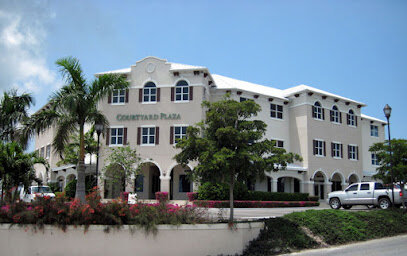Best Housing, Construction & Development Lawyers in Turks and Caicos Islands
Share your needs with us, get contacted by law firms.
Free. Takes 2 min.
Free Guide to Hiring a Real Estate Lawyer
Or refine your search by selecting a city:
List of the best lawyers in Turks and Caicos Islands
About Housing, Construction & Development Law in Turks and Caicos Islands
The Turks and Caicos Islands (TCI) are a British Overseas Territory known for their stunning landscapes and thriving tourism industry. In recent years, the islands have seen significant growth in housing, construction, and development projects. As a hub for investment and growth, the territory presents both opportunities and legal challenges. Housing, construction, and development law in the Turks and Caicos Islands encompass various regulations governing land use, zoning, building standards, and property sales. These laws are designed to ensure sustainable development that respects the environment and caters to the needs of local communities.
Why You May Need a Lawyer
Various circumstances may necessitate the involvement of a lawyer specializing in housing, construction, and development law in TCI. These include buying or selling property, dealing with disputes over land ownership, navigating zoning and planning laws, understanding building codes and standards, and ensuring compliance with environmental regulations. Engaging a lawyer can be crucial for negotiating contracts, resolving conflicts with contractors or developers, and providing guidance on legal obligations and rights under TCI law.
Local Laws Overview
The legal framework for housing, construction, and development in the Turks and Caicos Islands is multifaceted, incorporating elements from common law and local statutes. Key aspects include:
- Land Ownership: The Land Ordinance outlines the rights and processes related to purchasing and selling land.
- Zoning and Planning: The Physical Planning Ordinance governs land use planning and zoning to ensure orderly development and conservation.
- Building Regulations: The Building Code establishes safety and quality standards for construction projects.
- Environmental Considerations: Environmental Protection legislation mandates that development projects consider sustainability and impact on natural resources.
- Contract Law: Applicable for agreements involving construction, sale, or rental of property.
Frequently Asked Questions
What are the steps involved in buying property in the Turks and Caicos Islands?
The process involves selecting a property, obtaining financing if necessary, making an offer, conducting due diligence including a title search, executing a sales agreement, and finalizing the transaction through legal transfer and registration with the Land Registry.
Are there restrictions on foreign ownership of property?
No, the Turks and Caicos Islands do not impose restrictions on foreign ownership of property, making it an attractive location for international investors.
What should I be aware of when hiring a construction contractor?
Ensure the contractor is licensed and insured, review previous work and references, clearly define the project scope and timelines in a contract, and regularly monitor progress to ensure adherence to specifications and quality standards.
How can I resolve a construction dispute?
Attempt resolution through negotiation or mediation first. If these methods fail, legal action may be necessary. Involvement of a lawyer experienced in construction law can facilitate the process.
What is the role of the Physical Planning Department?
The Physical Planning Department oversees and enforces land use policies, zoning regulations, and development plans to ensure sustainable growth and environmental protection.
How do I ensure compliance with local building codes?
Consult with a knowledgeable architect or engineer, regularly inspect construction progress, and seek guidance from the Building Control Department on specific code requirements and approvals.
Is an environmental impact assessment necessary for development projects?
Yes, depending on the size and nature of the project, an environmental impact assessment may be required to identify and mitigate potential negative effects on the environment.
What are the key considerations for leasing commercial property?
Pay attention to lease terms, duration, rental rates, maintenance responsibilities, zoning compliance, and the provision for property modifications or expansions.
How is property inheritance handled in Turks and Caicos Islands?
Property inheritance is governed by local laws and may involve probate proceedings. It is advisable to draft a will or seek legal consultation for estate planning.
What should I do if a neighbor infringes on my property?
Address the issue through direct communication. If a resolution cannot be reached, you may need to consult a lawyer to explore legal remedies, including court proceedings.
Additional Resources
For further assistance or information on housing, construction, and development in TCI, consider the following resources:
- Department of Land and Surveys
- Physical Planning Department
- Building Control Department
- Turks and Caicos Islands Bar Association
- Local real estate agencies
Next Steps
If you need legal assistance in housing, construction, or development, begin by consulting a reputable lawyer specializing in these areas. Gather all pertinent documents related to your issue and schedule a consultation to discuss your case in detail. You may also seek referral services through the Turks and Caicos Islands Bar Association to find qualified legal professionals. It is vital to act promptly to protect your interests and ensure compliance with relevant laws and regulations.
Lawzana helps you find the best lawyers and law firms in Turks and Caicos Islands through a curated and pre-screened list of qualified legal professionals. Our platform offers rankings and detailed profiles of attorneys and law firms, allowing you to compare based on practice areas, including Housing, Construction & Development, experience, and client feedback.
Each profile includes a description of the firm's areas of practice, client reviews, team members and partners, year of establishment, spoken languages, office locations, contact information, social media presence, and any published articles or resources. Most firms on our platform speak English and are experienced in both local and international legal matters.
Get a quote from top-rated law firms in Turks and Caicos Islands — quickly, securely, and without unnecessary hassle.
Disclaimer:
The information provided on this page is for general informational purposes only and does not constitute legal advice. While we strive to ensure the accuracy and relevance of the content, legal information may change over time, and interpretations of the law can vary. You should always consult with a qualified legal professional for advice specific to your situation.
We disclaim all liability for actions taken or not taken based on the content of this page. If you believe any information is incorrect or outdated, please contact us, and we will review and update it where appropriate.
Browse housing, construction & development law firms by city in Turks and Caicos Islands
Refine your search by selecting a city.















